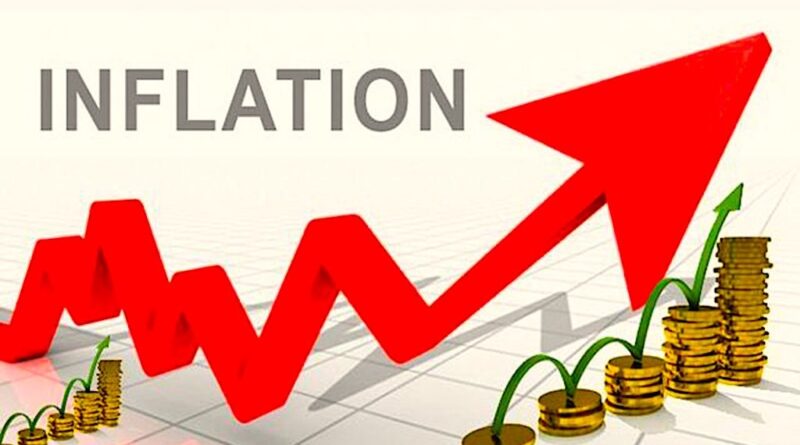Manufacturers Face Inflation, Low Demand, and High Costs
The President of the Manufacturers Association of Nigeria (MAN), Francis Meshioye, attributed the situation to rising inflation and the reduced purchasing power of consumers.
Speaking on Wednesday at the 2025 Media Personality of the Year Award and Presidential Luncheon in Lagos, Meshioye noted that Nigeria’s manufacturing sector in 2024 encountered “a myriad of macroeconomic and infrastructural challenges that severely impacted its performance.”
He stated that the sector was burdened by rising inflation, a weakening Naira, increasing interest rates, higher electricity tariffs, historically low sales, multiple taxes and levies, as well as persistent security challenges.
“These factors collectively strained the sector’s profitability and curtailed its contribution to the nation’s GDP.
“Inflation in Nigeria reached an alarming 34.6% by November 2024, diminishing consumers’ purchasing power and causing a decline in demand for manufactured goods. This inflationary burden also led to an accumulation of unsold inventory, which rose to N1.4 trillion across the manufacturing industries,” he said.
He further explained that many manufacturers turned to alternative energy sources, which increased their costs and made it harder to stay competitive.
Meshioye added that the naira’s devaluation reduced the profitability of manufactured goods as the cost of importing raw materials became much higher.
He continued, “At the same time, the floating of the exchange rate resulted in a steep depreciation of the Naira, which fell from N666/$ in mid-2023 to over N1700/$ by mid-2024. This depreciation inflated the costs of imported raw materials and machinery, worsening the already strained profitability of manufacturers.”
On the high interest rates, he noted, “Interest rates reached unprecedented levels, climbing to 27.7% by November 2024. This increase substantially raised borrowing costs, making it harder for manufacturers to access financing for expansion and modernisation.”
He also raised concerns about the sharp decline in the manufacturing sector’s share of GDP, which fell from 16.04% in Q4 2023 to 12.68% in Q2 2024.
He said, “The combination of high operational costs, reduced consumer demand, and limited access to finance contributed majorly to this decline.
“The rising interest rates, combined with inflation, severely limited the potential for investment in the sector, impeding long-term growth prospects.”
To tackle these challenges, the MAN President suggested “timely passage of the four tax bills before the National Assembly, implementation of the patronage of made-in-Nigeria products policy and taming of inflation.”
He also urged the government to ensure food security, encourage the local sourcing of raw materials, resolve policy inconsistencies, improve infrastructure like roads and railways, enhance energy security, and reduce electricity tariffs.
He stated, “There is no gainsaying the fact that manufacturing is pivotal to galvanising and sustaining the economic growth and development of Nigeria. We seek the government’s alignment with our conviction that a win for the manufacturing sector is a win for the economy and, by extension, a better life for the citizenry.”
EXPERTS OPINION
Economic expert Ayokunle Olubunmi, speaking to the Daily Trust about the concerns raised by the Manufacturers Association of Nigeria (MAN), warned that Nigeria might be on the brink of hyperinflation. He urged the government to take urgent action to address the issue.
Olubunmi, who serves as the Head of Financial Institution Ratings at Agusto and Co., stated, “The government needs to address this situation. If inflation continues to rise at this rate, we are heading towards a hyperinflationary environment.”
“That means in the last two to three years, the prices of things would have increased up to three or two hundred times; that’s double or triple.
He added, “We have seen that income is struggling to keep pace with expenses. You notice that more manufacturers will struggle to sell their products. And if care is not taken, it can also affect economic growth.”
See Also: Nigeria’s Debt Rises to N142 Trillion Amid Rising Inflation
Dr. Gbenga Adeoye, a chartered accountant and lawyer, attributed the issue to cost-push inflation caused by the high foreign exchange rate.
He explained that manufacturers who rely on imported materials face high forex costs, leading to increased prices for locally produced goods. This, in turn, reduces consumers’ purchasing power.
Dr. Adeoye emphasised the urgent need for government intervention to regulate foreign exchange and strengthen the Naira to address the problem.
He also noted that unsold goods create a ripple effect, impacting not only manufacturers but also raw material suppliers, workers, and the repayment of bank loans.
Dr. Adeoye stated, “So, the government must address the exchange rate in any way it can. The only way to do that is if there is action on the part of the CBN and the president trying everything possible to stop illicit demand for foreign exchange such that when the supply is higher than the demand, then the government can now bring the price down and that will also reduce what is happening in the parallel market.
He stressed, “More importantly, credits should be given to entities, small-scale industries, so that they can export more items and then we can have a positive balance of trade.
“When you have a positive balance of trade, the demand for foreign exchange will reduce and then you can bring the exchange rate downward. And when that happens, all of this cost-push inflation will be addressed.”
Content Credit| This article was originally published by https://dailytrust.com/
Picture Credit | https://leadership.ng/




